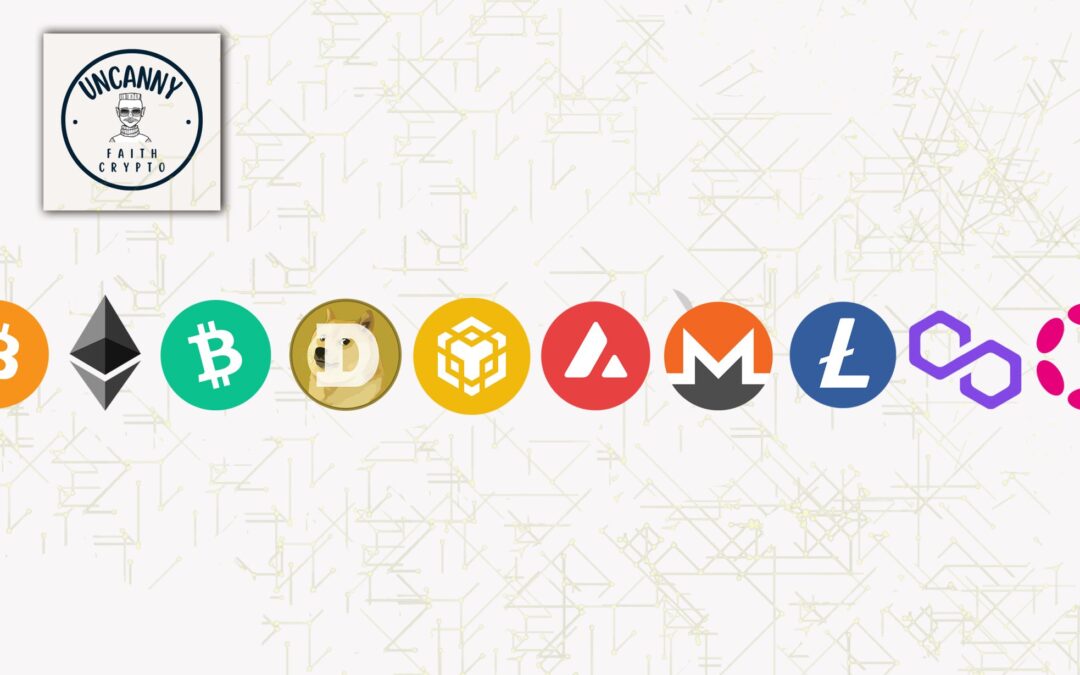In just over a decade since its inception, Bitcoin has evolved from an obscure technological curiosity into one of the most discussed innovations in finance. As we look to 2025, this decentralised digital currency is no longer just the realm of tech enthusiasts and libertarian thinkers—it’s being actively considered and adopted by corporations, governments, and individuals alike. Could Bitcoin truly redefine global financial systems in the next few years? Let’s explore its potential, challenges, and the opportunities it presents.
What is Bitcoin and Why Does It Matter?
To start, Bitcoin is a decentralised digital currency that functions independently of traditional financial institutions. It operates on blockchain technology, where transactions are verified and recorded on a public ledger maintained by a network of computers. Unlike fiat currencies such as the US dollar or Euro, Bitcoin is not controlled by any central authority, making it immune to government interventions or monetary policy manipulations.
Why does Bitcoin matter? The answer lies in its unique properties. It promises borderless, censorship-resistant financial transactions with low fees, making it particularly attractive in a world that’s increasingly digital yet often riddled with financial inequality.
As we approach 2025, Bitcoin’s ability to operate outside traditional financial systems positions it as both a disruptor and an enabler—paving the way for financial inclusivity, innovation, and potentially even systemic change on a global scale.
Bitcoin’s Role in a Changing Financial Landscape
The global financial system as we know it has long relied on central banks, fiat currencies, and intermediaries. While this model has facilitated economic growth for decades, it is now showing cracks. Issues like inflation, excessive printing of money, rising interest rates, and financial exclusion affect millions worldwide.
Bitcoin offers an alternative. By standing outside the conventional financial system, it could address some of these fundamental issues.
1. Countering Inflation with Scarcity
One of Bitcoin’s most defining features is its capped supply of 21 million coins. Unlike fiat currencies that central banks can print indefinitely, Bitcoin’s scarcity is algorithmically enforced. With inflation reaching multi-decade highs in many parts of the world, citizens have started to look towards Bitcoin as a potential hedge against the devaluation of their money.
Recent trends underscore this shift. For instance, in countries like Venezuela and Turkey—where hyperinflation has rendered local currencies nearly worthless—Bitcoin adoption is on the rise. Should inflationary pressures persist globally, Bitcoin’s innate scarcity could drive its appeal even further by 2025.
2. Promoting Financial Inclusion
Globally, over 1.4 billion adults remain unbanked, according to the World Bank. This means they lack access to essential financial services such as savings accounts, loans, or payment systems. For these populations, Bitcoin offers a lifeline. With just a smartphone and an internet connection, anyone can store, send, and receive Bitcoin, bypassing the need for traditional banks.
For example, in regions like Sub-Saharan Africa and Southeast Asia, Bitcoin adoption is steadily increasing because it allows cross-border remittances with lower fees compared to traditional methods like Western Union. This decentralised financial network could empower unbanked individuals and offer them a fair chance at economic participation by 2025.
3. Challenging Traditional Banking Systems
Large-scale adoption of Bitcoin doesn’t just augment financial systems—it fundamentally challenges them. Banks currently act as gatekeepers for wealth management and financial transactions, charging fees and imposing barriers. Bitcoin shifts this paradigm by enabling peer-to-peer transactions without intermediaries.
As the use of Bitcoin and other cryptocurrencies expands, we could see less reliance on commercial banks for day-to-day transactions. By 2025, this could result in traditional banks rethinking their roles or even integrating cryptocurrency services into their offerings to remain competitive.
Opportunities Bitcoin Presents for the Future
Bitcoin’s potential to revolutionise finance stems from its use cases and benefits. Here are some of the most prominent opportunities to look out for by 2025:
1. Cross-Border Remittances
Remittance services are a lifeline for millions of people, particularly in developing countries. Yet, traditional remittance platforms charge exorbitant fees (sometimes exceeding 10%) and take days to process transactions. Bitcoin can facilitate near-instant, low-cost international transfers, making it a game-changer for global remittance.
For instance, through the Lightning Network—a second-layer solution built on Bitcoin’s blockchain—users can send and receive payments instantly, with significantly lower transaction fees. By 2025, widespread adoption of such technologies could disrupt traditional remittance ecosystems.
2. Decentralised Finance (DeFi) Innovation
While Bitcoin’s blockchain primarily focuses on being a store of value and medium of exchange, its principles have influenced the rapidly growing Decentralised Finance (DeFi) ecosystem. Although platforms like Ethereum dominate DeFi, Bitcoin’s integration into decentralised financial protocols is gaining momentum.
By 2025, innovations like Bitcoin-backed loans, decentralised savings accounts, and BTC-based smart contracts could bring traditional financial services to a decentralised realm, reducing dependence on banks.
3. A New Reserve Asset?
As countries like China and Russia explore alternatives to the US dollar as a reserve currency, Bitcoin is catching the attention of some nation-states. El Salvador made headlines for adopting Bitcoin as legal tender in 2021, showcasing its experiment on the global stage.
Could Bitcoin emerge as a global reserve asset by 2025? While it’s unlikely to replace the dollar or Euro outright, it could serve as a complementary reserve. Forward-thinking central banks may accumulate Bitcoin in their portfolios, seeing it as "digital gold" with attributes like scarcity, portability, and immunity to geopolitical risks.
Challenges On the Road to 2025
While Bitcoin’s future is promising, the road to 2025 is fraught with challenges that must be addressed.
1. Regulatory Uncertainty
Governments worldwide are grappling with how to regulate Bitcoin. For example, the European Union has introduced legislation like MiCA (Markets in Crypto-Assets), while countries such as China have outright banned cryptocurrency trading. Striking a balance between fostering innovation and protecting consumers is essential.
2. Environmental Concerns
Bitcoin mining’s energy consumption has garnered widespread criticism. Although sustainable mining practices (like using renewable energy) are gaining traction, public perception remains mixed. By 2025, resolving these concerns will be critical for Bitcoin’s broader acceptance.
3. Volatility
Bitcoin’s notorious price swings remain a deterrent for some users. While the introduction of Bitcoin ETFs (Exchange-Traded Funds) and stablecoins backed by Bitcoin may provide stability, volatility remains a challenge for adoption as an everyday currency.
Actionable Insights
So how can individuals, businesses, and policymakers prepare for the rise of Bitcoin?
-
For Individuals: Start by educating yourself about Bitcoin and secure wallet options. If you’re considering investing, only allocate an amount you can afford to lose.
-
For Businesses: Explore whether accepting Bitcoin as a payment option could suit your target audience. Platforms like BitPay make integration seamless.
- For Policymakers: Engage with blockchain experts to better understand its potential and draft regulations that encourage innovation while ensuring consumer protection.
Frequently Asked Questions (FAQs)
1. Will Bitcoin replace traditional currencies by 2025?
While Bitcoin is unlikely to completely replace fiat currencies by 2025, it will increasingly function as an alternative or complementary system for savings and transactions.
2. Is Bitcoin safe to use?
Bitcoin transactions are secure because of cryptographic technology. However, users should take precautions, such as securing their private keys and using reputable wallets.
3. What’s the best way to get started with Bitcoin?
To begin, research trusted exchanges like Coinbase or Binance for purchasing Bitcoin. Secure your BTC in a hardware or software wallet, and start small to familiarise yourself.
4. How can Bitcoin’s environmental impact be minimised?
Sustainable energy solutions, including solar and hydro-powered mining operations, are already being implemented to reduce Bitcoin’s carbon footprint.
Conclusion
The road to 2025 promises both challenges and opportunities for Bitcoin as it continues to redefine financial systems worldwide. Whether it’s promoting financial inclusivity, offering an inflation hedge, or challenging traditional banking systems, Bitcoin’s impact is undeniable.
As adoption grows and technologies advance, Bitcoin may well become a household name—not just as a digital currency but as a cornerstone of a new global financial order. Are you ready to embrace the changes Bitcoin could bring? Let’s walk this road together—towards a more decentralised and empowering future.

